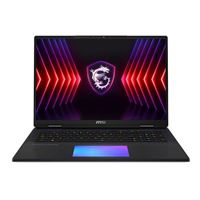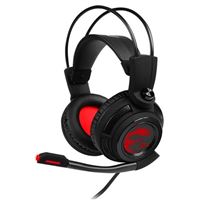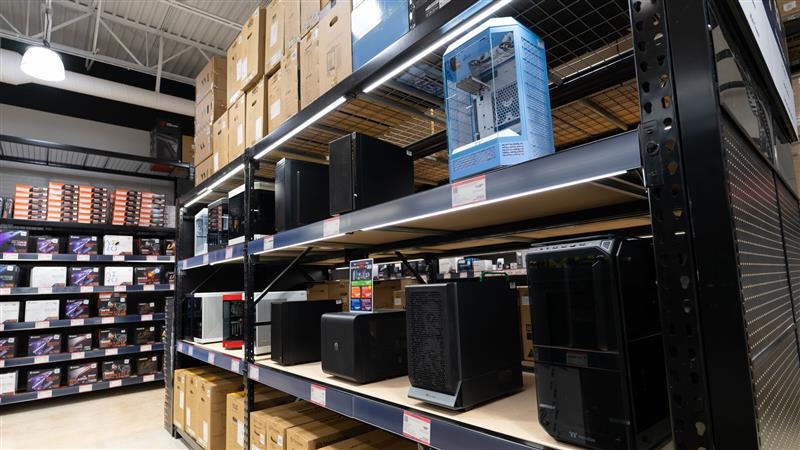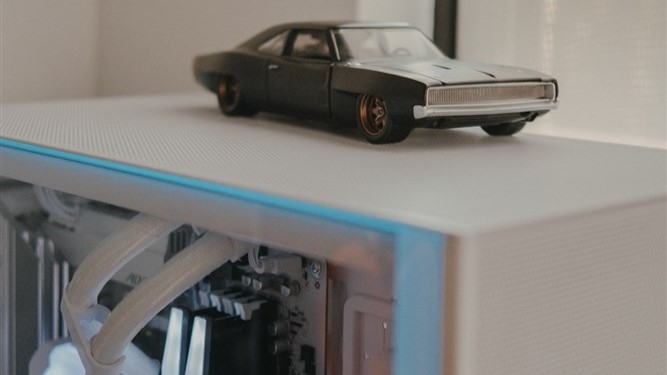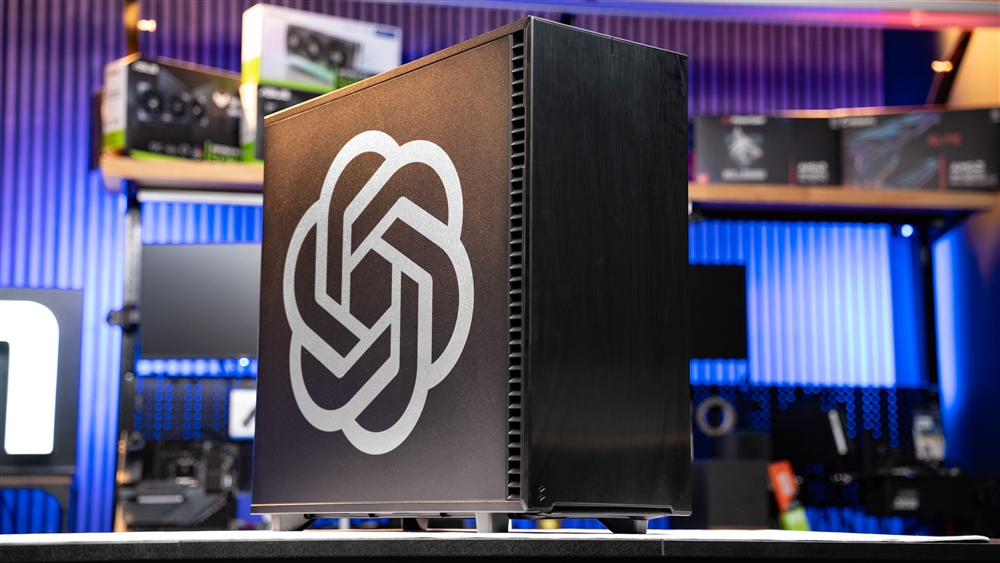MSI Tian 18 HX Review: Bigscreen Gaming Beast
A true desktop replacement with an 18-inch screen and even a mechanical keyboard.Reviews
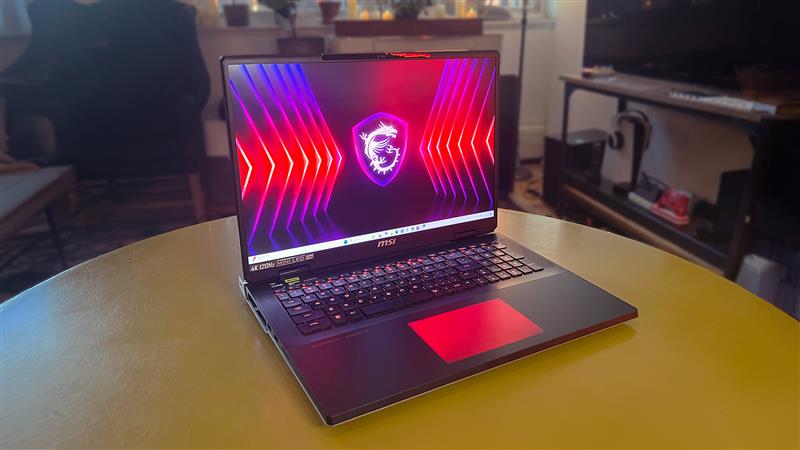
There’s something inherently impressive about a laptop like the MSI Titan 18 HX. It's a machine so massive and unapologetically over-the-top that it almost feels like a throwback to the days of big, bold laptops that screamed "I'm a gamer," even as smaller-screen, thin-and-light gaming laptops become easier to find.
The Titan 18 doubles down on the opposite ethos: maximum power and maximum size, in this case combining an Intel Core i9-14900HX CPU and NVIDIA GeForce RTX 4090 (plus massive amounts of RAM and storage).
Design: Subtle as a sledgehammer
This is not the kind of laptop you casually toss into a backpack. It weighs nearly 8 lbs and has a desktop footprint of almost 16 inches x 12 inches. The sleek black chassis is accented by RGB lighting, and if you're traveling with it, make sure to leave extra room in your bag for the extra-large power brick.
The mechanical keyboard, built in collaboration with SteelSeries and using Cherry switches, helps make this feel more like a desktop than a laptop. The touchpad is a bit of a conversation piece -- it's backlit and fully flush with the wrist rest, a design I've only seen on a handful of laptops over the years. For a big gaming laptop like this, however, I'm using an external mouse 90% of the time (if not more).
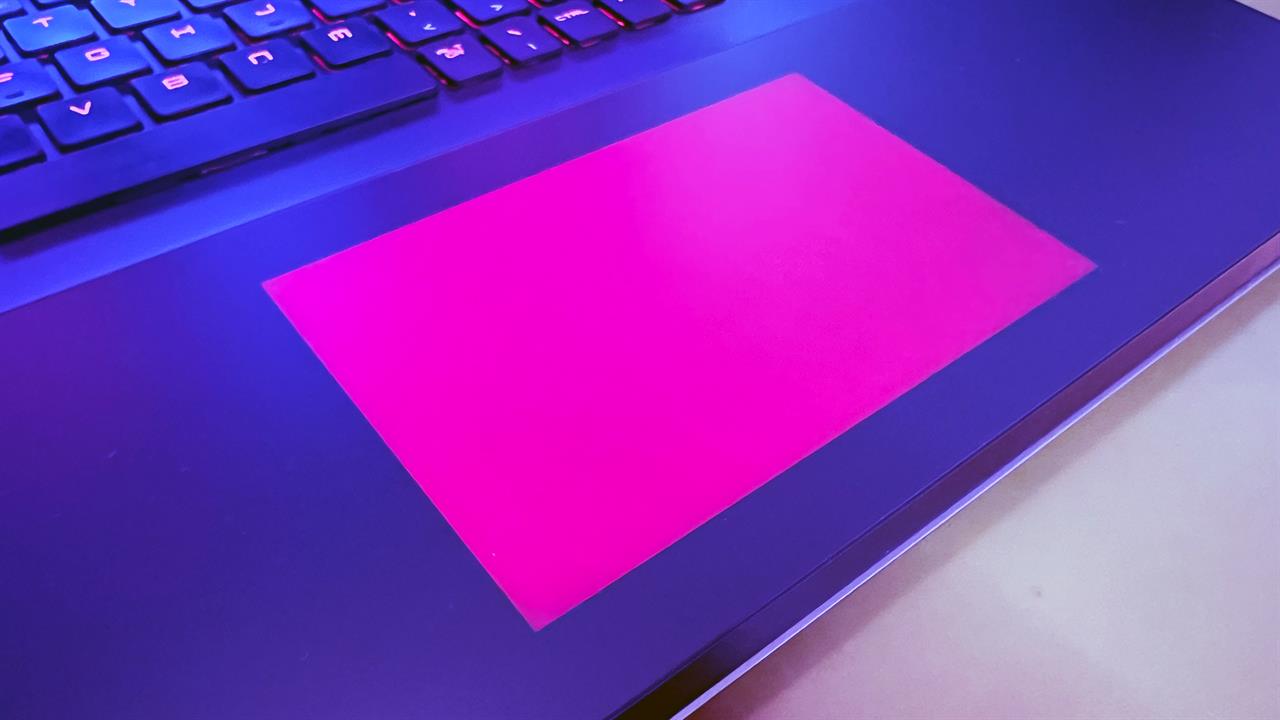 Photo: Dan Ackerman
Photo: Dan Ackerman Performance: Desktop power on your lap
Inside, the Titan 18 is a showcase for Intel and NVIDIA’s current top-end laptop parts. Powered by Intel’s Core i9-14900HX and an NVIDIA GeForce RTX 4090, this machine is as fast as any laptop I've tested this year. The configuration available at Micro Center, currently at $4,099, also includes an amazing 64GB of RAM and 4TB of total SSD storage.
Naturally I had to play new games like Space Marine 2, Indiana Jones and the Great Circle, and STALKER 2 on it, and even these demanding games ran smoothly at the highest detail settings. I regularly got 75 fps in Space Marine 2 at Ultra detail levels and QHD resolution, and below you'll find impressive 3D Mark and GeekBench scores.
You'll have to balance performance, heat, and fan noise to your preferred levels. The built-in MSI Center software helps with that, letting you fine-tune fan speed, RGB lighting, graphics mode, and more -- or you can turn on the MSI AI Engine, which will make changes as needed. At their highest settings, the internal fans get loud, but you should have enough performance overhead to keep them below the max speed.
Benchmark scores
- Geekbench 6 Single-Core: 2,880
- Geekbench 6 Multi-Core: 16,009
- 3DMark Speed Way: 5,304
- 3DMark Port Royal: 12,756
- 3DMark Wild Life Extreme: 40,009
Display: Immersion overload
Even with the high-end components, the 18-inch screen is really the standout feature, offering a resolution of 3,840x2,400 at a 120Hz refresh rate. The 16:10 aspect ratio gives you extra vertical real estate, which is a boon for productivity tasks, though let’s be honest: this machine wasn’t built for spreadsheets.
Audio quality is decent for a laptop. A big system like this gets a bit of an unfair advantage by having room for physically bigger speakers. Still, most gaming laptops benefit from a headset (like the reasonably priced virtual 7.1 surround sound MSI DS502).
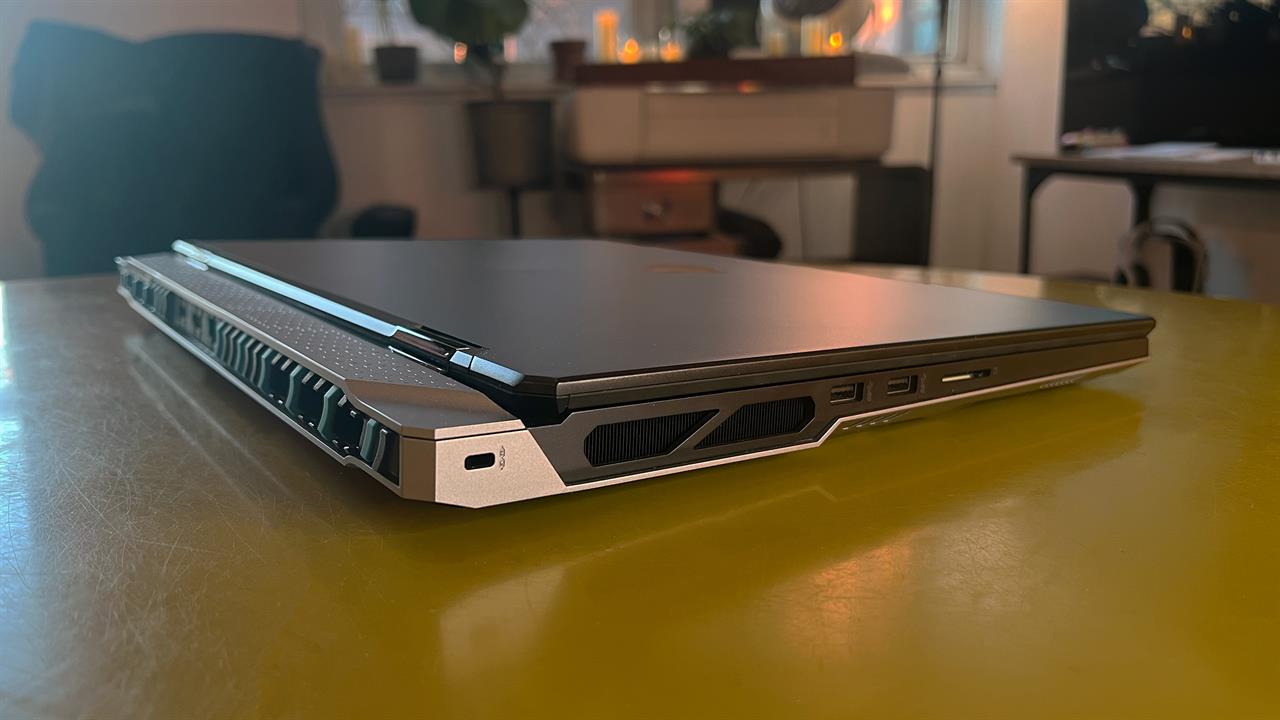 Photo: Dan Ackerman
Photo: Dan Ackerman Verdict: A niche behemoth
The MSI Titan 18 isn’t trying to please everyone. This is a big, expensive, in-your-face gaming laptop, although the components (and 64GB of RAM + 4TB SSD) make the $4,099 price seem completely fair. Besides the big screen and great keyboard, you also get Thunderbolt 4, multiple USB-C and USB-A ports, HDMI 2.1, and even a full-sized SD card reader—a rarity in modern gaming laptops.
If you've got the desk space for it, it's a bold pro-gamer statement piece that has overhead to be your main gaming rig for years to come.
Read more: Laptop and desktop resources
Micro Center Editor-in-Chief Dan Ackerman is a veteran tech reporter and has served as Editor-in-Chief of Gizmodo and Editorial Director at CNET. He's been testing and reviewing laptops and other consumer tech for almost 20 years and is the author of The Tetris Effect, a Cold War history of the world's most influential video game. Contact Dan at dackerman@microcenter.com.
Comment on This Post
See More Blog Categories
Recent Posts
This Week in AI: OpenAI's Big ChatGPT Upgrades, GPT-5 and GPT-OSS
For Aug. 8, 2025: Google Jules launches, Anthropic upgrades Opus, YouTube using AI to sniff out kids, AI trips up another legal case, Apple Intelligence under pressure.
Continue Reading About This Week in AI: OpenAI's Big ChatGPT Upgrades, GPT-5 and GPT-OSS


